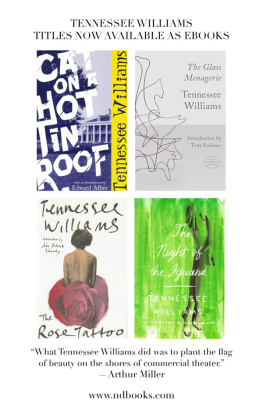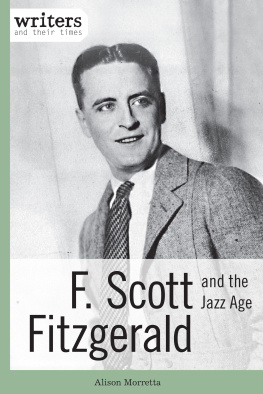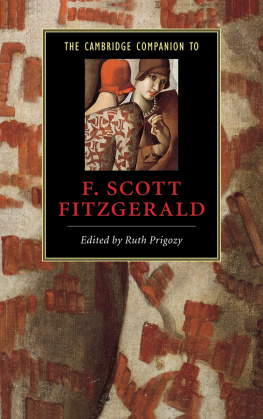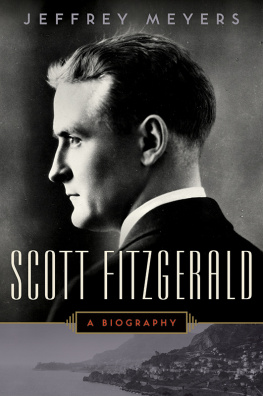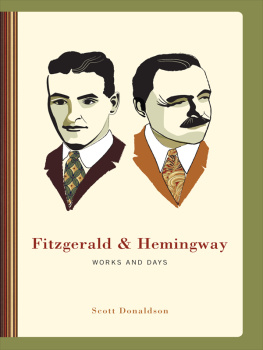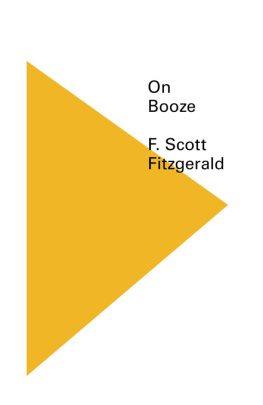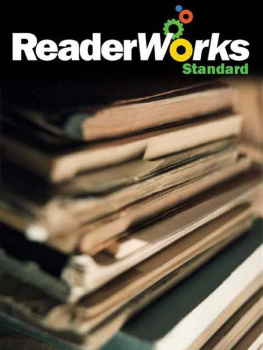Fitzgerald Francis Scott - The crack-up: with other miscellaneous pieces, excerpts from note-books and letters by F. Scott Fitzgerald together with letters to Fitzgerald from Gertrude Stein, Edith Wharton, T.S. Eliot, Thomas
Here you can read online Fitzgerald Francis Scott - The crack-up: with other miscellaneous pieces, excerpts from note-books and letters by F. Scott Fitzgerald together with letters to Fitzgerald from Gertrude Stein, Edith Wharton, T.S. Eliot, Thomas full text of the book (entire story) in english for free. Download pdf and epub, get meaning, cover and reviews about this ebook. City: New York, year: 2009;1964, publisher: New Directions Publishing Corporation, genre: Non-fiction. Description of the work, (preface) as well as reviews are available. Best literature library LitArk.com created for fans of good reading and offers a wide selection of genres:
Romance novel
Science fiction
Adventure
Detective
Science
History
Home and family
Prose
Art
Politics
Computer
Non-fiction
Religion
Business
Children
Humor
Choose a favorite category and find really read worthwhile books. Enjoy immersion in the world of imagination, feel the emotions of the characters or learn something new for yourself, make an fascinating discovery.

- Book:The crack-up: with other miscellaneous pieces, excerpts from note-books and letters by F. Scott Fitzgerald together with letters to Fitzgerald from Gertrude Stein, Edith Wharton, T.S. Eliot, Thomas
- Author:
- Publisher:New Directions Publishing Corporation
- Genre:
- Year:2009;1964
- City:New York
- Rating:5 / 5
- Favourites:Add to favourites
- Your mark:
The crack-up: with other miscellaneous pieces, excerpts from note-books and letters by F. Scott Fitzgerald together with letters to Fitzgerald from Gertrude Stein, Edith Wharton, T.S. Eliot, Thomas: summary, description and annotation
We offer to read an annotation, description, summary or preface (depends on what the author of the book "The crack-up: with other miscellaneous pieces, excerpts from note-books and letters by F. Scott Fitzgerald together with letters to Fitzgerald from Gertrude Stein, Edith Wharton, T.S. Eliot, Thomas" wrote himself). If you haven't found the necessary information about the book — write in the comments, we will try to find it.
A self-portrait of a great writer s rise and fall, intensely personal and etched with Fitzgeralds signature blend of romance and realism.The Crack-Up tells the story of Fitzgeralds sudden descent at the age of thirty-nine from glamorous success to empty despair, and his determined recovery. Compiled and edited by Edmund Wilson shortly after F. Scott Fitzgeralds death, this revealing collection of his essaysas well as letters to and from Gertrude Stein, Edith Wharton, T.S. Eliot, John Dos Passostells of a man with charm and talent to burn, whose gaiety and genius made him a living symbol of the Jazz Age, and whose recklessness brought him grief and loss. Fitzgeralds physical and spiritual exhaustion is described brilliantly, noted The New York Review of Books: the essays are amazing for the candor.
Fitzgerald Francis Scott: author's other books
Who wrote The crack-up: with other miscellaneous pieces, excerpts from note-books and letters by F. Scott Fitzgerald together with letters to Fitzgerald from Gertrude Stein, Edith Wharton, T.S. Eliot, Thomas? Find out the surname, the name of the author of the book and a list of all author's works by series.

